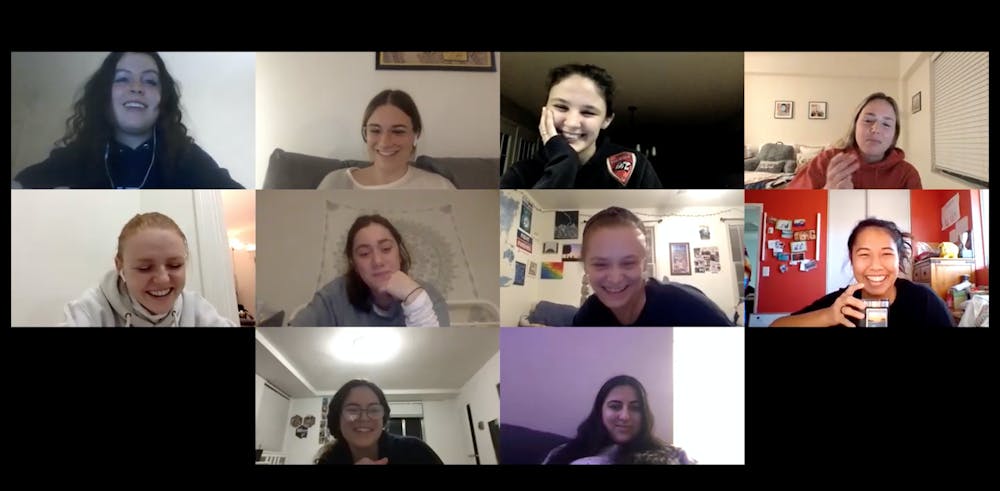Following a hectic semester of fully-online programming, organizing and coordination, American University’s student-run clubs hope to improve operations during the spring semester.
Many clubs at AU find it difficult to adapt their routines for Zoom. Senior Jonathan Bergman in the School of Communication is the head of AU’s student-run PR firm, Eagle Communications, and said he has faced “enormous difficulties” organizing the group online.
“People are so fatigued from Zoom that it’s tough to get people to want to show up,” Bergman said.
Some students faced burnout at the conclusion of the fall semester, and Bergman said because of that, it has made it harder for him to run the club. This semester, however, he said he wants to be “much more mindful” of students’ schedules and learn from his previous mistakes.
Still, given the circumstances, Bergman is impressed by the level of work his team produced.
“I believe our next client is going to be very happy with us,” he said.
Maddy Park, a freshman in the School of Public Affairs, is currently an outreach coordinator for the Korean Student Association and is the family program director for the Asian American Student Union. Park said that, despite the lack of online event variety and easily accessible interpersonal connections, the regular Zoom meetings have helped her and others find a community.
“It can feel slightly isolating,” she said. However, Park wants to diversify the content for both organizations in the hope that it will “make Zoom University a little better for everybody.”
Other students said that the online format of club meetings slowed down forming social connections, especially as freshmen.
For Tiffanie Roye, a freshman in the School of Communication and a member of Her Campus AU and American Literary Magazine, finding and joining clubs online was fun but “definitely different.”
Roye’s early experiences with clubs were confusing and chaotic, she said, with poorly-explained joining processes and an ill-timed club fair that began while many of her peers were still in class.
“I joined like, seven clubs, but I didn’t know how to get involved,” Roye said.
That sense of uncertainty meant she took longer than she would have otherwise to get involved.
Qudsia Saeed, an AU Muslim Student Association member and She’s the First freshman representative, found the online switch increased participation among club members.
“I think a lot of people are looking for community in this terrifying time,” Saeed said.
She believes that participation in social networking clubs such as MSA and She’s the First grew due to the relative isolation of students.
Junior Haley Widom, the president of the women’s club soccer team, said organizing and being a leader has been extremely difficult online. Without the ability to play, the team has transitioned to other forms of participation, including Zoom online workouts.
Both the women’s and the men’s teams have also participated in the Run For Justice and raised money to support Campaign Zero, the ActBlue Community Bail Fund and the Black Visions Collective.
“[Being online] has definitely made us value one another and the team so much more,” Widom said.





